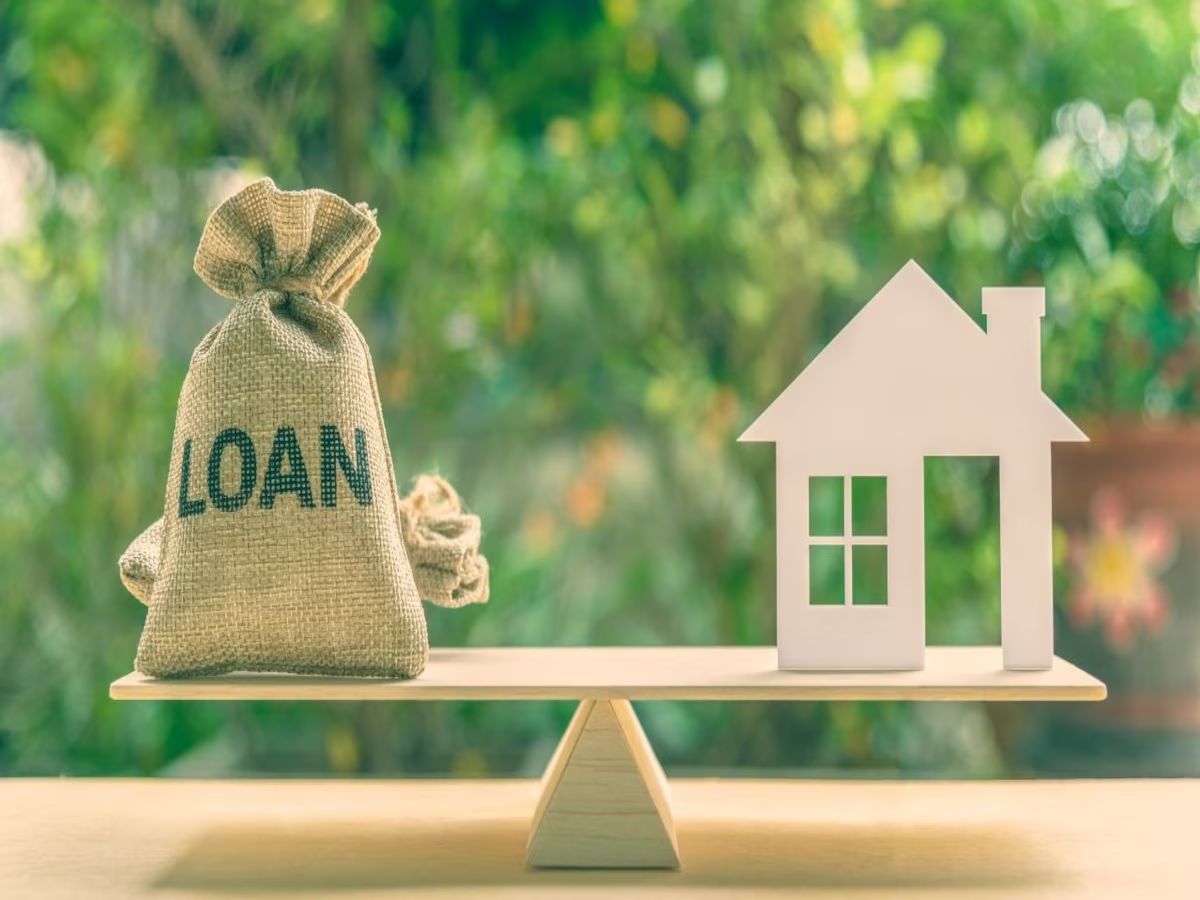Construction loans are short-term, high-interest loans used to finance the building or renovation of a home or commercial property. In Ohio, the interest rates for these types of loans can vary depending on several factors, including the lender, the borrower’s creditworthiness, the amount and term of the loan, and the state of the broader economy.
If you’re considering a construction loan in Ohio, it’s essential to understand how these interest rates work and what factors can influence them. Here’s a comprehensive guide to help you navigate this financial product.
Average Interest Rates on Construction Loans in Ohio
Interest rates for construction loans in Ohio generally fall in the range of 7% to 10%. However, these rates can fluctuate based on several factors, such as:
- Current Market Conditions: The economic climate and the Federal Reserve’s monetary policy significantly impact construction loan interest rates.
- Loan Type: There are different types of construction loans available, such as construction-to-permanent loans or standalone construction loans, and the interest rates may vary depending on the loan type.
- Credit Score: Borrowers with a high credit score are more likely to receive lower interest rates, as they are seen as lower-risk borrowers.
- Loan Amount and Term: Larger loans and longer loan terms might have different interest rates, as lenders weigh the risk of lending higher amounts or over extended periods.
Factors Affecting Interest Rates
- Credit Score
Your credit score is one of the most important factors affecting your interest rate. Typically, the higher your score, the lower your interest rate. Borrowers with scores above 740 may see more favorable rates, while those with scores below 620 could face significantly higher rates or have difficulty qualifying. - Down Payment
The size of your down payment is another significant factor. A larger down payment reduces the lender’s risk, which can result in a more favorable interest rate. Construction loans often require a down payment of 20% to 30%, but this can vary. - Loan Type
- Construction-to-Permanent Loans: This type of loan is more common and can be beneficial for homeowners who intend to stay in their property long term. The interest rate for these loans is typically lower than that of a standalone construction loan because it converts into a regular mortgage once construction is complete.
- Standalone Construction Loans: These loans are typically short-term, lasting 12 to 18 months, and come with higher interest rates. They must be refinanced into a permanent mortgage once construction is finished.
- Economic Conditions
Interest rates are influenced by the Federal Reserve’s monetary policy, which can either raise or lower rates to influence the economy. When the Fed increases the benchmark interest rate, construction loan rates often follow suit.
Construction Loan Types in Ohio
- Construction-to-Permanent Loans
A construction-to-permanent loan is a combination of a construction loan and a traditional mortgage. During the construction phase, you only make interest payments. After construction is complete, the loan converts to a permanent mortgage with a fixed or variable interest rate. - Stand-Alone Construction Loans
These are short-term loans used specifically to finance the construction of a property. Once construction is complete, the borrower must refinance the loan into a permanent mortgage. Since the loan is short-term, the interest rates can be higher, and the lender usually requires interest-only payments during construction. - Owner-Builder Loans
For individuals who plan to act as their own contractor, owner-builder loans are available. These loans are often harder to secure, as lenders view them as riskier. Interest rates may be higher for these types of loans, and the borrower will be required to prove they have the necessary skills to manage the construction project.
How Do Construction Loans Work?
Unlike traditional mortgages, which disburse the loan amount in a lump sum, construction loans are paid out in stages or draws as the work progresses. These stages might include:
- Foundation completion
- Framing completion
- Roofing
- Interior work
The lender will release the funds based on the completed phase, and interest will accrue only on the amount disbursed at that time. This helps to reduce the amount of interest you pay during the construction phase.
Once the construction is completed, the loan either converts into a traditional mortgage (in the case of construction-to-permanent loans) or needs to be refinanced into a permanent mortgage.
How to Get the Best Interest Rate on a Construction Loan in Ohio
To secure the best interest rate, consider the following strategies:
- Improve Your Credit Score
A higher credit score can help you qualify for a better rate. You can improve your score by paying off debt, correcting any errors on your credit report, and ensuring timely payments. - Shop Around for Lenders
Not all lenders offer the same rates or terms. It’s essential to compare rates from different lenders, including banks, credit unions, and online lenders. Don’t forget to inquire about any hidden fees or closing costs that may affect the overall cost of the loan. - Consider a Larger Down Payment
Offering a larger down payment will reduce the lender’s risk and may result in a better interest rate. A 20% or more down payment is typically required for construction loans. - Lock in Your Rate
Some lenders may allow you to lock in your interest rate at the time of application, protecting you from future rate hikes. It’s worth considering, especially in a volatile market.
Conclusion
The interest rate on construction loans in Ohio typically ranges from 7% to 10%, depending on factors like your credit score, the type of loan, and the lender’s policies. These loans can be short-term and come with higher rates than traditional mortgages. However, by improving your credit score, shopping around for the best deal, and making a larger down payment, you can secure a more favorable rate.
Remember, construction loans are not a one-size-fits-all product. It’s essential to thoroughly research your options, speak with multiple lenders, and carefully consider your financial situation before making a decision.
FAQ: Construction Loan Interest Rates in Ohio
1. What is the typical interest rate on construction loans in Ohio?
The interest rate on construction loans in Ohio typically ranges between 7% and 10%, though this can vary based on factors such as the type of loan, your credit score, the lender, and the current economic climate.
2. What factors affect the interest rate on construction loans?
Several factors influence the interest rate on construction loans:
- Credit Score: Higher credit scores generally lead to lower interest rates.
- Down Payment: Larger down payments may help reduce your rate.
- Loan Type: Construction-to-permanent loans may have lower rates than standalone construction loans.
- Economic Conditions: The Federal Reserve’s monetary policy and market conditions can impact rates.
- Loan Amount and Term: Larger or longer loans may have different rates compared to smaller, short-term loans.
3. What is a construction-to-permanent loan?
A construction-to-permanent loan is a type of loan that covers both the construction phase and the permanent mortgage. You make interest-only payments during construction, and once the home is completed, the loan converts into a traditional mortgage with either a fixed or variable interest rate.
4. What is a standalone construction loan?
A standalone construction loan is a short-term loan used only to finance the construction phase. Once the construction is complete, the borrower must refinance the loan into a permanent mortgage. These loans typically come with higher interest rates since they are short-term.
5. Can I get a construction loan with a low credit score in Ohio?
It is possible to get a construction loan with a low credit score, but the interest rate will likely be higher, and you may face more challenges securing approval. Many lenders require a minimum credit score of around 620-640, but a higher score (700+) will often result in more favorable loan terms and lower rates.
6. How much of a down payment is required for a construction loan in Ohio?
Generally, construction loans require a down payment of 20% to 30% of the total loan amount. A larger down payment may help reduce your interest rate, as it lowers the lender’s risk.
7. Can I lock in my interest rate for a construction loan?
Yes, many lenders allow you to lock in your interest rate at the time of application. This helps protect you from interest rate increases during the construction phase. Be sure to ask your lender about rate lock options when applying.
8. What happens after the construction is complete?
Once the construction is completed, your construction loan will either convert into a permanent mortgage (in the case of a construction-to-permanent loan), or you will need to refinance the loan into a traditional mortgage. This marks the transition from the short-term construction phase to a long-term, fixed-rate or adjustable mortgage.
9. What are the typical loan terms for a construction loan in Ohio?
Construction loans are generally short-term loans, typically lasting 12 to 18 months. The terms are designed to cover the length of the construction project, after which the loan either converts to a permanent mortgage or must be refinanced.
10. How do I qualify for a construction loan in Ohio?
To qualify for a construction loan in Ohio, you’ll typically need:
- A good credit score (typically 640 or higher).
- Proof of income and employment history.
- A down payment of 20% to 30%.
- A clear and feasible construction plan or blueprints.
- The ability to provide detailed financial statements or documents (such as tax returns and debt-to-income ratio).
Read More:
- Can International Students Apply for a Loan in the USA? Full Guide
- What is a Single Payment Loan in California and Ohio? A Detailed Guide
- How to Become a Loan Officer in Oregon: A Step-by-Step Guide
- Where to Get a $200 Loan in California: A Comprehensive Guide
- Understanding Hybrid Loans for Businesses in Needham, MA




